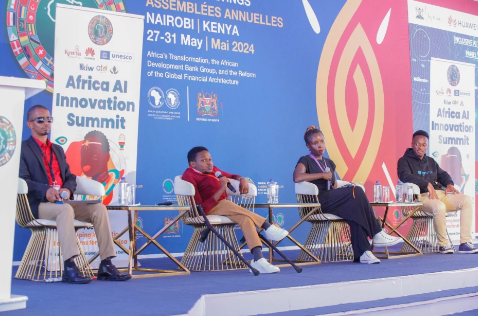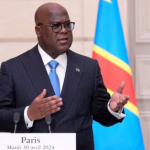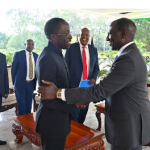Artificial Intelligence (AI) technologies and robotics offer promising avenues for assisting individuals with special needs in navigating social interactions and unfamiliar environments more comfortably.
These innovations provide tools tailored to enhance speech and conversational skills, thereby empowering individuals with special needs to engage more effectively in various social settings.
A recent three-month hackathon, organized by the Kenya National Innovation Agency, Huawei, UNESCO, Assistive Technologies for Development, and the Kenya Institute of Special Education, showcased the creativity of young innovators in developing technological solutions for persons with special needs.
These initiatives aim to leverage AI and robotics to address specific challenges faced by individuals with disabilities, promoting inclusion and accessibility.
During the Africa AI Innovation Summit held at the Kenya International Convention Centre (KICC), the participating students demonstrated their solutions to a panel focused on catalyzing the African ecosystem to develop AI solutions tailored to African needs.
This platform highlights the potential of AI to address pressing societal issues and foster innovation within the continent.
At the Summit, Dagoretti South Member of Parliament John Kiarie emphasized the importance of prioritizing key technological enablers such as infrastructure, data, skills, ethics, and financing to facilitate the growth of AI in Africa.
By investing in these foundational elements, policymakers and stakeholders can create an enabling environment for AI adoption and development, ultimately driving socioeconomic progress and inclusivity across the continent.
“With all resources availed to Africa, with a bulging and enthusiastic youthful, educated and relatively technologically savvy population, Africa has everything to ensure that Africa does not sleep through this fourth Industrial Revolution,” Kiarie said.
Huawei, through its Director for Government Affairs, Adam Lane, has expressed a strong commitment to fostering AI development in Kenya by providing training for students and offering technical and cloud resources.
Lane highlighted Huawei’s dedication to forming partnerships that facilitate more hackathons and summits, enabling participants to fully explore AI opportunities.
At the AI Summit held alongside the African Development Bank annual meeting, Ephraim Mwereza emerged as the winner of the hackathon with his AI solution designed to assess autism.
Additionally, a team focusing on bridging the communication gap between caregivers and individuals with autism secured the second prize.
These innovative solutions were developed by students who had undergone training provided by Huawei and utilized Huawei Cloud resources in the development process.
Experts at the summit emphasized the importance of upskilling youth in AI and related fields.
Dr. Tomisin Fashina, the CIO of the African Development Bank, emphasized the role of education in overcoming underdevelopment, stating that education is the foundation for progress and advancement.
“We must educate ourselves out of under development, it all starts with education”.



